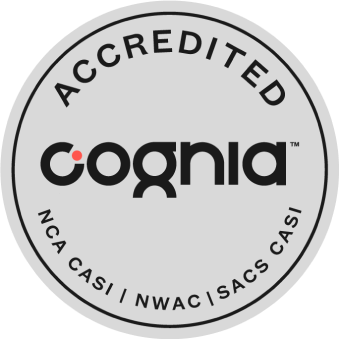A high-quality education can make all the difference in your child’s life, opening doors to competitive colleges and rewarding career paths.
Math skills in particular play a powerful role in long-term success. Studies have shown that students who perform well in math are more likely to thrive academically, professionally, and even financially.
Find out why math is important for your student’s future, and learn how you can empower your student to achieve more in this crucial subject area.
Benefits of learning math
There’s no denying that basic arithmetic is an essential skill for day-to-day life. But what about more complicated math concepts? Here’s how an excellent math curriculum could benefit your student in the long run.
Math skills have real-life financial returns
The math skills your student is learning now can have a significant impact on their future well-being. A study from the Urban Institute found that math scores are one of the best indicators for adult earnings.
According to the study, math scores are a better predictive factor of future income levels than reading scores, peer relationships, or health. The Urban Institute found that math scores around age 11 have the most impact on future earnings. A half-standard deviation increase in middle childhood math scores can raise future earnings by approximately 3.5%, equal to around $1,200 per year.
Math plays a large role in many STEM careers
Is your child interested in engineering? Do they want to become a scientist? Math skills can be hugely important for a wide range of STEM careers. Math also comes in handy for careers related to finance, analytics, or data.
The future is bright for careers related to math and science. According to the U.S. Bureau of Labor Statistics, STEM-related occupations are expected to increase by 10.4% from 2023–2033. In comparison, non-STEM occupations are only projected to grow by 3.6%.
Math fuels problem-solving and confidence
Math can help your student develop a range of soft skills that will benefit them in just about any industry. No matter what your student intends to study in college, math can build their confidence and problem-solving skills.
Through math, students learn to analyze and recognize trends, approach problems creatively, and build resilience when tackling tough challenges. Math promotes logical reasoning and encourages critical thinking.
How BASIS builds math mastery from grades K–12
At BASIS Charter Schools, our math curriculum is thoughtfully designed to equip students for success in college and their future careers. From kindergarten through high school, we help our students master everything from basic addition and subtraction to AP Calculus.
Accelerated structure
The BASIS Charter School Curriculum introduces students to concepts earlier than at traditional public schools. We start off strong in kindergarten by teaching math skills that are typically not covered until first grade. This accelerated pace continues throughout primary school, with students learning 1–2 grade levels ahead.
In grade 6, our students take Prealgebra. This course is typically not taught until grade 7 or 8 at most U.S. middle schools.
Here’s a closer look at the BASIS Charter Schools math sequence for middle school and high school:
- Grade 6: Prealgebra
- Grade 7: Algebra I & Geometry
- Grade 8: Algebra II & Geometry
- Grade 9: AP Precalculus
- Grade 10: AP Calculus AB
- Grade 11: AP Calculus BC
- Grade 12: Capstone Math
Expert teachers
Our math curriculum goes beyond memorization, emphasizing the why behind common math concepts. Our teachers are excellent at making connections with our students and getting them curious about math from a young age.
In our primary schools, we follow a co-teaching model with dedicated Subject Expert Teachers. Beginning in first grade, your student will be learning math from a teacher who has an advanced degree in math or a related subject area. These teachers are truly enthusiastic about the subjects they teach, extending their unique perspectives to our students.
Engaging curricular materials
At BASIS Charter Schools, kids explore mathematical ideas through project-based lessons. We utilize the Saxon Math curriculum in Grades K–3, teaching a grade level ahead. For example, we teach Saxon Math 1 in Kindergarten.
In grades 4-8, we utilize enVision Math, which is delivered through an engaging and robust digital platform. enVision Math provides our teachers with assessment tools and comprehensive lesson plans, making it easier to deliver engaging, interactive lessons that cater to diverse learning styles.
Advanced coursework
BASIS offers Advanced Placement (AP) math courses beginning in grade 9 with AP Precalculus. These advanced courses give students an opportunity to get ahead on college credits while still in high school. Regardless of your student’s intended major, AP math courses will teach them confidence and resilience, and may help them stand out when applying to competitive colleges.
As part of our senior year curriculum, we offer post-AP Math Capstone courses. These courses give students a chance to dive deep into a specific mathematical concept or idea. The class is designed to mimic the college experience, with independent research, lab work, and seminar-style discussions. The specific focus of our Math Capstone courses varies from year to year and from campus to campus.
Reinforcing math concepts at home
We believe that students learn best when their parents take an active role in their education. You can support your child’s math journey at home by celebrating their wins and recognizing their efforts.
If you have younger children at home, look for opportunities to practice math skills around the house. For example, your child could help you double a recipe or calculate the discount you could get with a store coupon. You can also look into educational games and apps that teach math skills in a fun, approachable way.
The long-term payoff
Your child’s math education isn’t just about grades—it’s about equipping them with skills that will benefit them for years to come. With STEM-related occupations steadily growing, math skills can give your student a serious advantage as they prepare for college or enter the workforce.
If you’re ready to set your student up for success, apply to BASIS Charter Schools today. With locations in Arizona, Louisiana, Texas, and Washington, D.C., we are proud to provide our families with world-class, tuition-free education for grades K–12. Find a school near you and take a tour to learn more about our globally competitive academic program.






